Above: Jean Louis Forain, “Return of the Prodigal Son” (late-19th Century).
On June 12, 2017, Bishop Thomas John Paprocki of the Diocese of Springfield, Illinois, issued an official decree “Regarding Same-Sex ‘Marriage’ and Related Pastoral Issues.” Immediately, James Martin, S.J., took to his Facebook account in order to criticize the decree. In Martin’s judgment, referencing the “The Catechism of the Catholic Church,” such pronouncements from Church officials are a “sign of unjust discrimination.”
In his recently published book, “Building a Bridge: How the Catholic Church and the LGBT Community Can Enter into a Relationship of Respect, Compassion, and Sensitivity,” Martin repeatedly applauds “The Catechism” for bolding stating that homosexuals must be treated with “respect, compassion and sensitivity” and that “‘every sign of unjust discrimination’ must be avoided.” Yet, he also denounces the same Catechism for being “needlessly hurtful” towards homosexuals because, in his words, the Church describes “one of the deepest parts of a person—the part that gives and receives love” as “objectively disordered.”
During a June 16, 2017 Jesuitical podcast, Martin said:
God made you this way. You are wonderfully made, just like Psalm 139 says. You were knit together in your mother’s womb this way, you know, it’s a mystery why you were made this way, but this is part of your identity.
Therefore, according to Martin, homosexuals were created that way by God. But, how and why would God make someone “objectively disordered?” Consequently, either God made a mistake or “The Catechism” is in error. And as Martin proclaimed during his 2016 commencement address at Gonzaga University:
We look to other people for a roadmap of who we’re supposed to be, when all the direction we need is inside of us, planted by God. Whether you are man or woman, young or old, black, brown or white. Short or tall. Gay, straight, lesbian or transgender, you are beautiful. God does not make crap . . .
The message of James Martin outwardly appears compassionate and sensitive, but it’s essentially highly conflicted and confusing. It is also condemning, in that homosexuals are destined to always carry around an imagined “gay” gene in their bodies, and unless Church teachings are modified, are forbidden from ever expressing the “deepest” part of themselves “that gives and receives love.” This approach is remarkably similar to what I experienced in Catholic parochial schools during the 1970s and the 80s. Particularly in high-school, Christ was presented as a social justice warrior who had very detailed and specific directives pertaining to the current political conflict in Central America, the protection of the environment, and the equality of the sexes. With regards to sexuality, contraception, and abortion, much if it was up for debate. In general, certain Biblical and Church teachings, which couldn’t be avoided, were open to interpretation and wholly dependent upon the individual conscience. Even to an uneducated teenager, it felt bewildering and inconsistent.
In a way, this subjective and practically non-existent rule of life fit in with the conception of Jesus as He was presented to me since grade-school by the religious sisters who were my teachers. As depicted in the film version of the musical “Godspell,” Christ was the effeminate clown-faced leader to a group of flower-power rejects. I will never forget the moment the entire student-body marched into the gymnasium to watch the movie and a man in a Superman t-shirt appeared on the screen; he was Clark Kent’s deflated alter-ego without the decisiveness or the gumption. As a result, almost every day, I would rush home to watch reruns of “Gunsmoke,” “Bonanza,” and “The Wild, Wild, West.” I marveled at these plain speaking men who meant what they said. They seemed to create peace out of utter chaos with the force of their convictions. It was a world where a man’s honor was only as good as his word.
The priests I encountered during much of my formative years were tottering, elderly, and looked pushed about the religious sisters and women teachers who ostensibly controlled the parish and school. One day, a new middle-aged, lean, and gaunt looking priest with dark piercing eyes mysteriously showed up as a guest “religion” instructor. He talked about the sin of masturbation. I was in shock. What he said hung in the classroom like a bit of flatulence that everyone noticed, but no one would admit to. I never heard anyone, let alone a priest, speak about such things. Later, the rumor at lunchtime – that priest was banished from the school. But he spoke authoritatively, I thought he was crazy, but I never forgot him.
In “gay” men, there is often an odd juxtaposition of desires. In a cascade of abuse, we feel condemned and oppressed – first by our disinterested or absent fathers, then by macho-jocks at school, and finally by society at large, including the Church. Yet, at the same time we are inexplicably drawn towards union with the masculine; in the realm of “gay” sex, the most prized specimen is the manly dominant assertive “top” – or instertive partner. However, the imagined redemptive bonding with the masculine ideal always falls short or never takes place; thus “gay” men, in their frustration and resentment, are more likely to become despondent resulting in an increasingly self-destructive propensity for multiple casual partners and increasingly risky sex acts. The sexual culture of an all-male society, unmoderated by women, became an ideal petri-dish for a proliferation of virulent diseases.
Unfortunately, my generation bore the burden of having to “come-out” during the height of the AIDS crisis. Only, despite the threat of an immediate and painful death, I felt that my birth-right compelled me to be brave and honest. I thought I would find a savior in San Francisco – a man who perfectly combined the courageous attributes and physical prowess of the superheroes I worshipped when I was lonely and frightened little boy. But then friends began to get sick and die. One after another. And no one saved them. In the midst of this near constant trauma, I took some solace in being obsessed with my diet, work-outs, and colon cleansing treatments. At the same time, I was always fearful because my body went repeatedly out of whack as my thin and dry epidermis left me susceptible to a series of rectal infections. Looking for some order in my life, I got into the New-Age. Right around that time, Depeche Mode released their single “Personal Jesus.” The song endlessly played at the “gay” dance clubs. Inspired, I went about making my own god. For the most part, he was an amalgamation of James Dean, Alesister Crowley, and The Village People. I imagined myself as a rebel who practiced sex-magick in the public showers of the YMCA.
It was also during that period, while at home for the occasional visit, my worried parents sort of ambushed me with their apparently concerned friend – a Catholic priest. Without my knowledge, they invited him over for dinner. Afterwards, trying to act inconspicuous, he noticeably took me aside and tried to be jocular, but it came off as cloying on the verge of being creepy. You get this same sort of desperate need to ingratiate with James Martin. He singles himself out, namely by the fact that he is enlightened enough to call homosexuals by the current label of their choosing. His statements in this regard are angry and annoyingly sarcastic:
…the Church has been really good at writing documents about them [homosexuals], preaching to them, fulminating about them, tweeting about them, condemning them, but they don’t listen to them very much.
In his affected and pretentious manner of speech, he continued:
We should call the LGBT community, the LGBT community or gay or transgender; not same sex-afflicted…
The term “same-sex afflicted” does not appear in any official Catholic document.
The priest-friend of my parents had a remarkably similar tone. He largely thought the concerns expressed by my mother and father were ludicrously unfounded – after all: “God made you gay.” In his supreme benevolence, this priest understood that. But in parting, he recommended that I should be careful and try to settle down with someone. Passably good advice, I thought. But what he said was nothing I hadn’t heard any number of my more cautious and monogamy-inclined friends. One of them was a devotee of the dissident Jesuit John J. McNeill. He gave me one of his books, but I never read it. Anyway, after my run in with the simpering effete priest at my parent’s home, I had given up on the whole profession and the Church itself, but my friend, who always seemed to be unable to integrate his sexual identity with a memory of a rather devout Catholic upbringing, told me that he found great comfort in the writings of McNeill. I thought he was being overly nostalgic for his lost childhood. But McNeill gave him new hope in a wholly accepting Jesus and the certainty of “morally good homosexual relationships.” In his landmark book, “The Church and the Homosexual,” McNeill wrote:
Since most gay people experience their homosexual orientation as a part of creation, if they accept this Church teaching, they must see God as sadistically creating them with an intrinsic orientation to evil. Most gays would prefer to see the Church teaching as wrong, rather than believe God is sadistic.
My friend joined the local gay-affirmative Catholic parish; and we drifted apart. I heard later that he was dying of AIDS. Not him. It turned out that his stable monogamous relationship was not that stable or monogamous.
As my own body began to break down, I sometimes hated the god I created. It became my own Frankenstein – trying to destroy its creator. I became malevolent and increasingly self-destructive. I got involved with gay bondage subcultures. There, I could take out my frustration on those who were willing to be beaten. For awhile, I gloried in the rigid discipline and strict rules of engagement. The men in these environs were serious about their masculinity and their shaky hold upon it was entirely dependent on the ability to coldly enforce their will. For gay men, this was the last stop; a place where the desire for masculine assurance was reduced to brutality. The only other escape from this madness was death.
But I didn’t want to die.
For some reason, I returned to the Catholic Church. I don’t know why, except I was desperate and I believed Jesus had saved me. But it wasn’t the wispy man that I remembered from my childhood. This Jesus was strong and decisive. In the last moments of my life, he heard my simple prayer and took immediate action.
It was the early morning. The night before, I had spent on my knees in front of nameless men. In those dark days, my god was whoever I knelt before. I was in the hospital emergency room vomiting up blood. To the right of me, separated by a thin hanging sheet, was a teenager in the violent throes of a drug overdose; to the left, a woman with a massive pelvic infection due to an untreated STD. I looked up and the vision in front of me was a blur of nurses and privacy curtains being abruptly opened and closed. The place echoed with muffled moans, shouts, and screams. I wanted it to stop, but when confronted with the nothingness that my life warranted – I became frightened. The swirl of human activity that surrounded me grew dark and desolate. I called out to God. To a God I didn’t know, though I prayed He did exist. I needed help, and I needed it now.
Since my last encounter with the Catholic Church, I hoped things had changed. They hadn’t. A priest wanted to introduce me to the stable monogamous same-sex couples at his parish. Also, he thought I should join their LGBT parish ministry – perhaps, I would meet someone. I told him I was going to leave San Francisco. He didn’t think that was a good idea. I belonged here. He said to me: “Now you are in the right place.”
James Martin is currently making the same sort of recommendations when he advises those with same-sex attraction to find a “welcoming” parish. During his address to New Way Ministry, he said:
I am a big proponent of parish-shopping. I really am. I know it was verboten when I was growing up. Find a place that is welcoming. It’s easier in big cities. For example, in New York I can rattle off and even in DC or Baltimore, places that are LGBT friendly. That’s very important.
On his official Facebook page, Martin posted a list of “gay-friendly” parishes as compiled by New Ways Ministry.
In 2016, Martin accepted the “Bridge Building Award” from Jeannine Gramick of New Ways Ministry; Gramick’s long unwavering history of dissent on the issue of homosexuality resulted in a 1999 Vatican “Notification” prohibiting her from nay pastoral work with the “gay” community. She immediately defied the “Notification.”
While Marin accepts an award from Gramick, Paprocki defended the truth and debated with her in 2013.
One LGBT outreach and parish that Martin is particularly fond of, and repeatedly endorses, is “Out At St. Paul” located at St. Paul the Apostle Church in New York City. In 2015, the ministry and the parish sponsored a video project entitled “Owning Our Faith.” In the series, a number of Out at St. Paul members, including a “married” same-sex couple, were interviewed; most of whom disagree with Church teachings regarding homosexuality; for example, one “gay” man stated:
I think what’s interesting is that the Catholic Church probably thinks that it is accepting of gay people, because its message is ‘gay people exist and we should love them and not discriminate against them. But because the Church also tells gay people essentially that they need to be celibate, what the Church is saying is “you cannot live fully. You can be gay but you can’t live that life.” And so that inherently is discriminatory.
That day, I walked away from my meeting with the priest and I was immediately overcome by a foreboding sense that I had made a huge mistake. I didn’t think the Catholic Church was the right place for me. But, I went home to heal and when I got better, I would try again.
Spending weeks in my old bedroom, I seldom ventured out; only to eat, use the restroom, and occasionally shower. When I did, I could get a quick glimpse of the kitchen and dining-room and I often noticed my father sitting there alone. I didn’t know what he was doing. He appeared to be praying. In his hands, I noticed a string of beads. I thought – a Rosary.
Years earlier, my father cared enough to tell me the truth; unworried about my reaction, because he was worried about my soul. I didn’t take it well, but I remembered what he said.
My dad had changed since I was a kid. When I was growing up, I never remembered my dad sitting quietly once. He was ambitious and always moving. Sometimes, I felt left behind. Now, I could just slightly decipher what he was almost silently whispering. He was praying for me. Those words were simple and honest, but they had power. Suddenly, I knew that someone cared about me – and loved me.
Somewhat recuperated from my recent ordeal, I wanted to again speak with a priest. Through the fog of a tumultuous decade, my parent’s reminded me of an unconventional priest I met once in the vestibule after the Christmas or Easter vigil when I was cajoled into attending Mass as a family. Likewise, this priest stuck in my mind. He was physically unimposing, but he had a loud voice. He spoke with authority and celebrated the Mass with reverence. From my parent’s, I heard that he wasn’t popular. I went back to that parish. He was gone. The man in his place was the same priest who said I was “gay,” told me to practice safe-sex, and sent me on my way. I stayed for the Mass. It was a whirlwind of hymn selections from the St. Lois Jesuits and the sanctuary was crowded with female extraordinary ministers. There was a frantic giddiness to the proceedings. Once he stopped speaking, I couldn’t recall a single word spoken by the priest in his homily.
I contacted the Diocese and found out where the priest was stationed. It was a little parish in a nearby town. I called him and made an appointment. He remembered me. I was astonished. I told him I wanted to go to Confession as it had been many years. I thought I would have to make an appointment. I thought he would make a big deal about it and get somewhat excited that a former sinner was coming home. He didn’t. In a calm and distinct manner, he gave me the times he heard Confessions.
On the allotted day, I showed up. There was a small line. I only waited a few minutes and walked inside the Confessional. My list of sins was extensive but non-specific as to number or frequency. He was quiet. When I finished, his directives were simple and to-the-point: return to Mass, frequent Confession, pray, develop a devotion to the Blessed Virgin Mary and the Saints, and read The Bible and The Catechism. Clear, concise, and conceivable.
I read Scripture in a haphazard sort of way – skipping through entire books and sections and stopping at those parts which caught my attention. I was most drawn to the parable of “The Prodigal Son, the account of the woman caught in adultery, and St. Joseph as described in the Gospel of Luke. In each, there was a remarkable clarity in thought, word, and deed. No sin was unforgivable. No amount of disobedience and spite permanently shut out the truly sorrowful. There was sin, forgiveness, and redemption. And, in St. Joseph, I found a model of masculine purity and inner strength. Joseph, heard the word of God, and humbly accepted it.
For awhile, doing what the priest suggested was easy. Then I became lonely. All of my friends, everything I knew, everything I cherished, everything that intrigued me, and everything I thought which determined my place in this world, I left in San Francisco. I was alone. I didn’t know where I belonged. Father mentioned Courage.
I was incredibly scared when I decided to attend my first Courage meeting. I was extremely wary because the nearest Courage meeting took place back in San Francisco. I hadn’t retuned there since I left a few months before. But I needed to talk with someone, anyone, who I thought would understand.
At the meeting, the first thing which impressed me – where the Courage members. Many of them, because they economically had no other choice, still resided in the “gay” ghettoes – sometimes in the shadow of the “gay” affirmative parish. But, like me, they had experienced devastation as “gay” men: losing friends and lovers to AIDS, becoming infected themselves with HIV, realizing after many years, the pain and loneliness from childhood, that they took into homosexuality with them, was still there. A few of them, sometimes sought out solace from other “gay” men, and they returned to Courage in order to confess those sins. They knew, through these priests, they could find absolution. As for the Courage chaplain, he greatly reminded me of the stout priest who sent me here. He wasn’t a big or strong looking man, but he spoke the Truth.
In homosexuality, there are often competing ideologies. Because “gay” men, when they were young boys, sometimes did not conform to certain gender norms, in adulthood, there is a celebration of the transgressive from the Radical Faeries to “RuPaul’s Drag Race.” But there also persists an extreme adulation of the hyper-masculine. In my mind, often because of “gay” accepted patterns concerning sexual positioning, men who measured up to the physical characteristics of manliness were the most masculine. Yet, “gay” male sexual icons are often silent and brooding or inaccessible and self-absorbed. This rejecting idol goes back to the dismissive statues of Antinoos and reappears in gay pornography. The masculinity we seek, we never find.
In some heterosexual men, frequently those who look diminutive or bookish, there is a palpable and enormously attractive quality of masculinity about them. It’s remarkable how Catholic men have rallied about the somewhat short, spectacled, and thoughtful looking Cardinal Raymond Burke, Bishop Athanasius Schneider, and Bishop Thomas Paprocki. There is also a strong male devotion for the common-sense guidance and sometimes gruff advice once given by the faintly pallid looking, but fearless St. Josemaria Escriva as transcribed in the small but thick combined volumes of “The Way, The Furrow, and The Forge.” All of these men convey a forthright belief in every word they say; constantly, their willingness to speak the Truth has set them up for persecution and ridicule. But they remain steadfast. They are truly Christ-like. In the secular media, there is a similar phenomena taking place when Ben Shapiro and Professor Jordan Peterson speak to large crowds comprised primarily of young men. No such admiration ever developed around the tall and towering Cardinal Roger Mahony or Christoph Schönborn.
For the time will come when they will not endure sound doctrine; but wanting to have their ears tickled, they will accumulate for themselves teachers in accordance to their own desires, and will turn away their ears from the truth and will turn aside to myths. (2 Tim 4:3-4)
What James Martin is proposing in his book “Building a Bridge,” and through his numerous promotional interviews, involves a massive deconstruction of Catholic teaching and a radical reinterpretation of Scripture. Because Martin’s constant message has been that “God made you this way,” this would necessitate a complete revision of the Catechism with regards to homosexuality. Martin even makes suggestions for an alternative which is more pastorally-correct:
I’m no theologian, but I would say that some of the language used in the catechism on that topic needs to be updated, given what we know now about homosexuality. Earlier, for example, the catechism says that the homosexual orientation is itself “objectively disordered.” But, as I say in the book, saying that one of the deepest parts of a person — the part that gives and receives love — is disordered is needlessly hurtful. A few weeks ago, I met an Italian theologian who suggested the phrase “differently ordered” might convey that idea more pastorally.
Martin’s initial claim is that this revision would simply facilitate discourse between the Church and the LGBT community because terms such as “objectively disordered” are “needlessly hurtful.” But it goes much deeper than that. The “gay” post-modern philosopher Michel Foucault once wrote:
Discourse transmits and produces power; it reinforces it, but also undermines and exposes it, renders it fragile and makes it possible to thwart it. …
For this reason pro-gay Catholic advocates are obsessed with “dialogue,” “discourse,” and, in Martin’s case, for the hierarchy to “listen” to the LGBT community. Martin contends that through this process of conversation and listening, the Church hierarchy will get to know the LGBT community and this will eventually facilitate change; Martin wrote:
Many church leaders do not know L.G.B.T. people who are public about their sexuality. That lack of familiarity and friendship means it is more difficult to be sensitive. How can you be sensitive to a person’s situation if you don’t know them? So one invitation is for the hierarchy to come to know them as friends.
Cardinal Christof Schönborn, the archbishop of Vienna, reminded us of this at the meeting of the Synod of Bishops on the family, when he spoke of a gay couple he knew who had transformed his understanding of L.G.B.T. people. He even praised same-sex unions.
Martin argues that “the onus is on the institutional church.” During a 2016 Facebook Live address at the offices of “America” magazine, Martin said, in terms of Catholicism’s approach to homosexuality: “I think the Church has a long way to go frankly.” His vision is of a Church in a state of institutional flux, out of sync with the merciful God who created some people gay. Martin proposes a radical reinterpretation of the Bible to fit a pro-gay narrative; concerning the passages in Scripture which have traditionally been understood as condemning homosexual activity, Martin said:
All these Bible passages that people throw at you; I think really need to be understood in their historical context. I mean Leviticus and Deuteronomy and even the stuff from the New Testament where Paul talks about it once or twice, has to be understood in their historical context…certainly in Old Testament times, they didn’t understand the phenomena of homosexuality and bisexuality as we do today.
In his 2013 debate with Jeannine Gramick, Paprocki warned against a philosophy that, in the name of compassion and sensitivity, fails to recognize truth:
…many post-modern philosophers and social critics adopted varying modes of cultural and moral relativism. Here no absolute or universal truths are possible, and ethical reflection becomes a political endeavor of compromise and mutual respect…Since supposedly there are no moral truths but only preferences held by individuals, all alternatives should be given equal respect and dignity. To hold to moral absolutes, in this view, is to limit human potential and deny equal dignity to those who do not accept or live by such precepts.
Bishop Paprocki puts forward a contrasting approach which is far simpler: contrition and redemption.
And, it does not require an overhaul of the Catechism nor a new form of gay-affirmative exegesis.
In his decree regarding same-sex marriage, Paprocki reiterates the solid teachings of the Catholic Church concerning marriage. His is unequivocal in his defense of marriage as “a covenant between one man and one woman.” If men or women deliberately go against this teaching, instituted by God, they should no longer be permitted to occupy positions of leadership, influence, and power within a parish. Of course, they should also not receive the Sacraments. Yet, this is in direct opposition to the idea floated by Martin in “Building a Bridge;” he contends that: “For Jesus, more often than not, it is community first, conversion second.” The problem with this approach, in terms of homosexual couples, is that long-time gay-affirmative outreaches and parishes, such as those in New York City, San Francisco, and Los Angeles, which have adopted a gradualist welcoming approach, have become increasingly intransigent in their dissidence. As a result, they only allow facilitating sycophants to speak at their parishes and LGBT ministries. Those with a more challenging and vigorous message are considered: “hateful,” “homophobic” or “discriminatory.”
In the decree from Bishop Paprocki, Martin was predominantly offended by the barring of those in a same-sex marriage from a Catholic funeral. But this is a wake-up call to those who have entered into such “marriages.” While a funeral Mass and the prayers offered during are incredibly important, emphasis should rightly be on the redemption of the soul before death. When I was a proud and unrepentant homosexual, just before my near-death, the hole of hell opened up for me. Later, if I died that day, I could have been given a Catholic funeral and I am sure my parents would have experienced some comfort in that, but it wouldn’t have done me any good.
In this decree, Bishop Paprocki prohibits those in a same-sex marriage from taking part in certain Sacraments, but he does not deny them the most important thing of all: reconciliation.
“Go and sin no more.”
Throughout Church history, there have always arisen good men such as Bishop Paprocki who had the bravery to stand up for the truth. Men such as St. Athanasius, St. John Fisher, and St. Thomas More proved their true manhood not by brute force, but in the strength of their words and in their out-front readiness to suffer for what was right. James Martin is a courtier, constantly scheming and sowing discontent; his proclamations that the Church treats homosexuals like “dirt” and “lepers” are purposefully inflammatory and blatantly false. Such brave men as St. Francis of Assisi and St. Damian of Molokai reached out to the poor, the diseased, and the marginalized, but they did so with a strict obedience to the truth. And they suffered for their fidelity.
St. Josemaria Escriva once compared the truth to disinfectant. He said: “it stings…and hurts the patient” when applied to an open wound. But it must be done or the wound will become infected. The compassionate and sensitive physician will warn his patient about the consequences of leaving an injury untreated – and his words will instill confidence and trust. Men such as this, like Bishop Paprocki, seek to transform hearts and minds. James Martin only seeks to transform the Church.
By the virtues of self-mastery that teach them inner freedom, at times by the support of disinterested friendship, by prayer and sacramental grace, they [those with same-sex attraction] can and should gradually and resolutely approach Christian perfection. – The Catechism of the Catholic Church
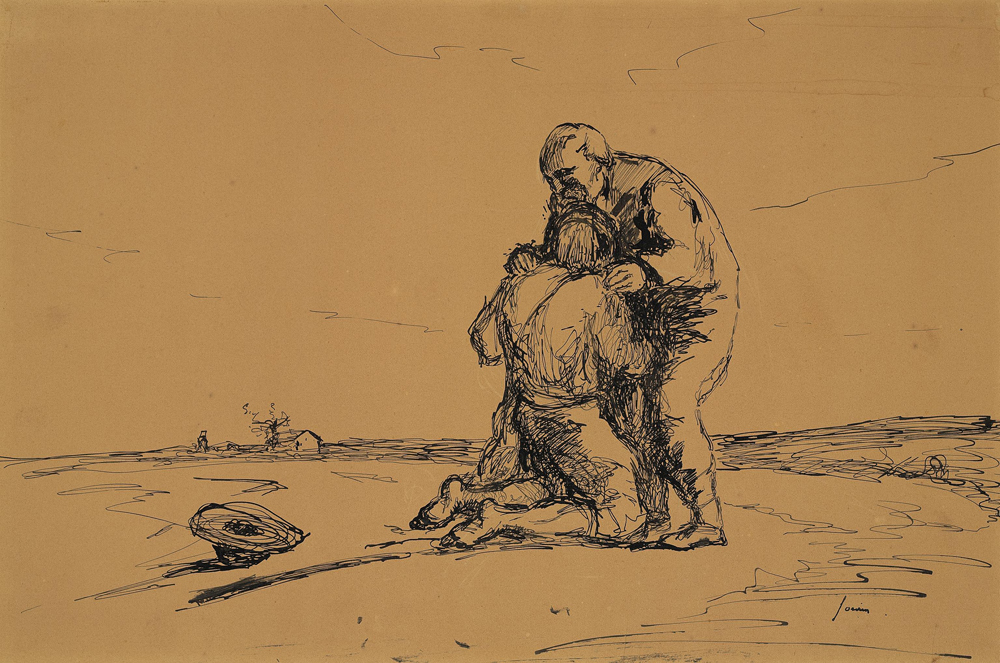
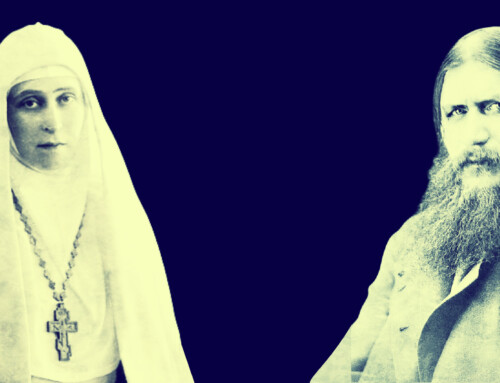
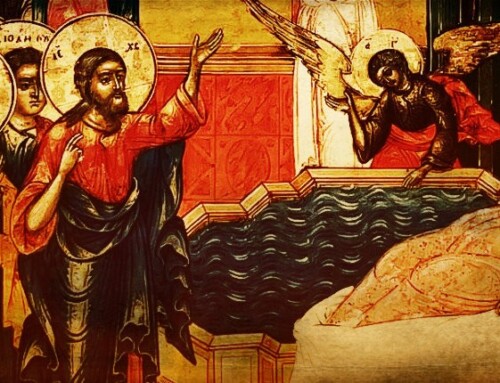
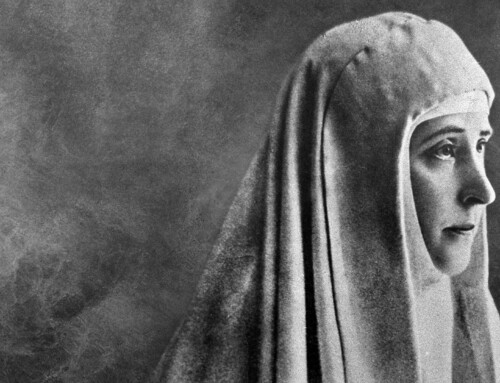
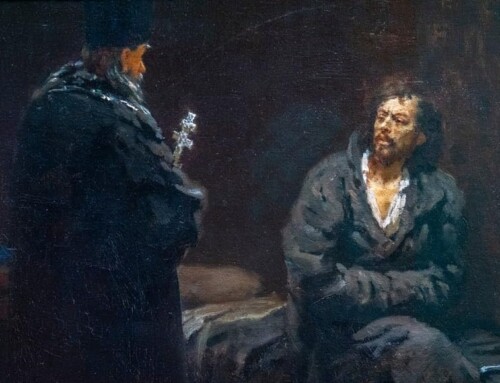
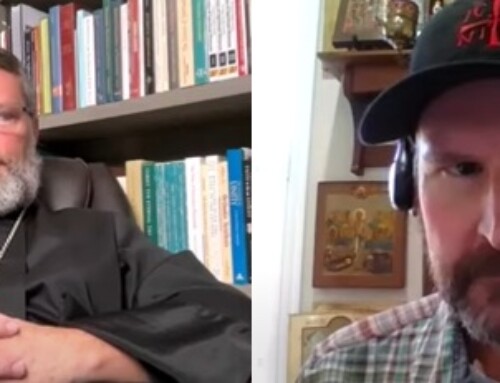
Thanks again for the powerful and truthful insights, that further explain what I once saw first hand, and the opposition now to the lessons I learned.
Thank you, Joseph. This is so clear, “In this decree, Bishop Paprocki prohibits those in a same-sex marriage from taking part in certain Sacraments, but he does not deny them the most important thing of all: reconciliation.” AND this, “Men such as this, like Bishop Paprocki, seek to transform hearts and minds. James Martin only seeks to transform the Church.” You have helped me see the truth.
Thank you for your witness. The saying about Truth being like a disinfectant is so true.
Great work! You can be loving in truth even if the truth hurts the other person. That is the part of growth and accountability that leads to repentance. I’m praying for the Catholic church and praising God for every individual in every denomination that puts it all on the line to love us all enough by teeming its the truth ♡